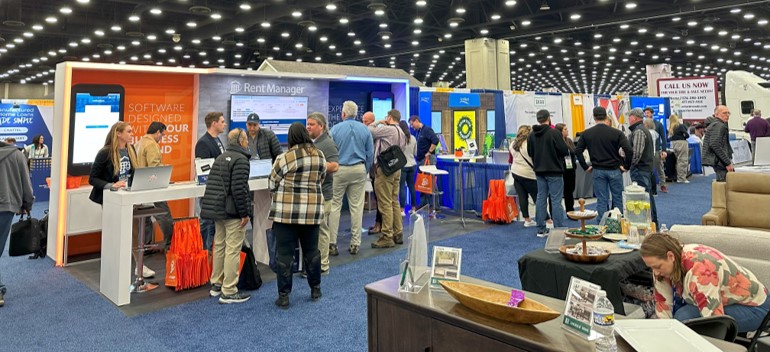As the rise of the machine continues, consumers’ expectations for instant gratification continue to ramp up across multiple industries, especially residential real estate. But how are property managers expected to keep up with ever-increasing pressures around maintenance, resident satisfaction, and boosting the bottom line? How do they identify the correct tools and resources to offload tedious, time-consuming tasks, increase operational efficiencies, and ultimately, enhance the resident experience? Artificial Intelligence (AI) has been making waves in the property management industry, promising to revolutionize how properties are managed, maintained, and leased. However, as this technology is relatively nascent, several misconceptions prevent property managers from fully embracing its potential. Here, we’ll talk through some of these misconceptions and set the record straight. Here are five common arguments about AI in property management:
1. AI Is Costly For Small Property Management Companies
The reality is that time is the most valuable currency of all, especially in property management. When property teams leverage the right AI platforms, they can offload some of the most time-consuming, business-critical processes like interactions with residents. Those who choose a fully integrated platform solution can better anticipate needs and deliver enhanced resident satisfaction in new strategic ways. Leveraged properly, the right AI solution can result in a huge return on investment.
2. AI Will Replace Property Managers
AI will augment, not replace, property managers. Property management is a people-first business. When it comes to integrating AI, the key is in balancing the human touch with technology that optimizes and offloads manual processes. By leveraging technology to create operational efficiencies, property managers will have more time and capacity to differentiate the level of service they provide to residents.
For example, Colleen’s first-to-market, flagship AI Rent Collection solution seamlessly engages and communicates with residents. Not only does this save top National Multifamily Housing Council (NHMC) companies thousands of hours per month, but residents often think they’re communicating with an actual person. AI is not designed to replace people. Its role is to supplement human output to facilitate an increase in productivity.
3. AI Is Too Complicated To Implement
A mature AI platform is a true “hands-off” solution and should effortlessly integrate with the company’s processes. Many AI solutions are designed to be user-friendly and easy to implement. With the right support and training, property managers can quickly integrate AI into their existing workflows. When searching for the right option, selecting a solution with a proven track record that’s served many residents over time is essential. Applying this to the multifamily sector, a proven track record equates to serving hundreds of thousands of units for more than one year.
Solutions like Colleen’s fully integrated AI platform for rent collection, lease renewals, and post-resident recovery collects data and converts it into insights across the entire portfolio, resulting in:
- Advanced, human-like conversations around complex financial information
- Time saved by up to 80% for rent collection
- Millions of dollars saved on uncollected payments and unpaid balances
4. AI Lacks Personalization And Human Touch
Both artificial and human intelligence can optimize each renter interaction. AI technology can be highly personalized; programmed to mimic humans; continuously learn from every interaction; and provide tenants with a more engaging and responsive experience. To ensure you are choosing the right solution, here are a couple of things to keep in mind:
- New solutions that promise to solve all property management challenges are impractical. Companies should explore solutions with an established customer base and credible references.
- Some companies are taking shortcuts by relying solely on generative AI, which is trained on unvetted Internet data and can lead to errors for critical services. It’s crucial to partner with a company that does not cut corners and builds its solution with real market data and resident interactions over an extensive period.
5. AI Is A Passing Trend
AI is here to stay. As technology advances, AI will become integral to property management, from leasing to maintenance, tenant communications, and beyond. As stated in a recent Rent Manager blog, “While AI will never replace the value and impact of human input and interaction, it can help your operation succeed in many ways. Boosting efficiency, saving time and money, and increasing resident satisfaction are just a few.”
Conclusions
AI will not replace humans, but humans who leverage AI will replace competitors who don’t. When the topic of AI arises, many people conjure up a dystopian future where malevolent robots reign. But in a society where on-demand is in demand, we must realize AI isn’t out to rule the world. It’s a transformative technology poised to reshape how we work and serve our customers.
In multifamily, AI is already simplifying property management processes, fundamentally changing how onsite teams and property owners manage their day-to-day operations. By dispelling common misconceptions, property managers can embrace AI and harness its power to deliver better experiences for their teams and residents across their entire portfolio.






